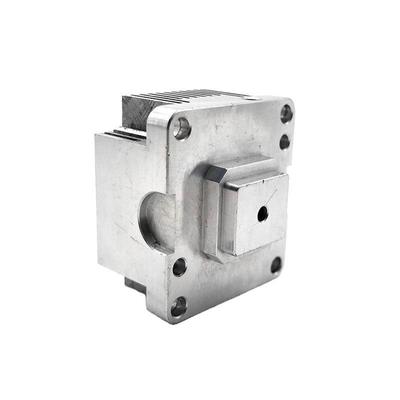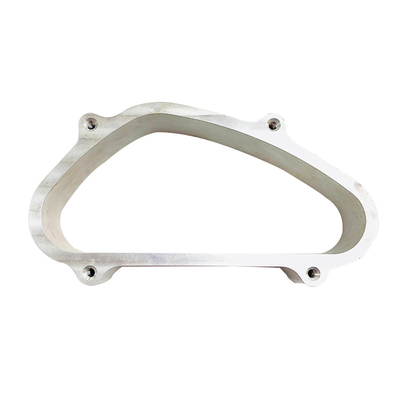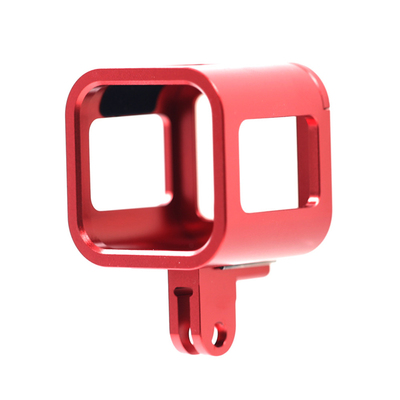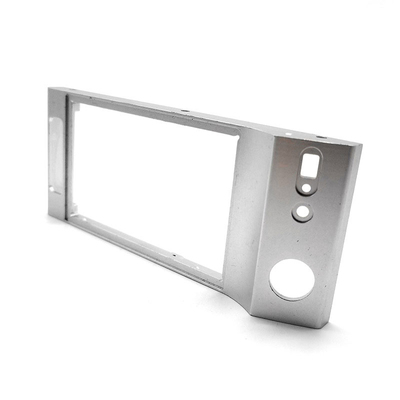Three Factors Affecting SCC Stress Corrosion Of Aluminum Plates
Three Factors Affecting SCC Stress Corrosion Of Aluminum Plates
| The chemical source of SCC is chloride. Chloride ion chemically interacts with the material at the crack tip. Since the tensile stress at the crack tip is the largest, it makes it easier for the crack to spread around. |
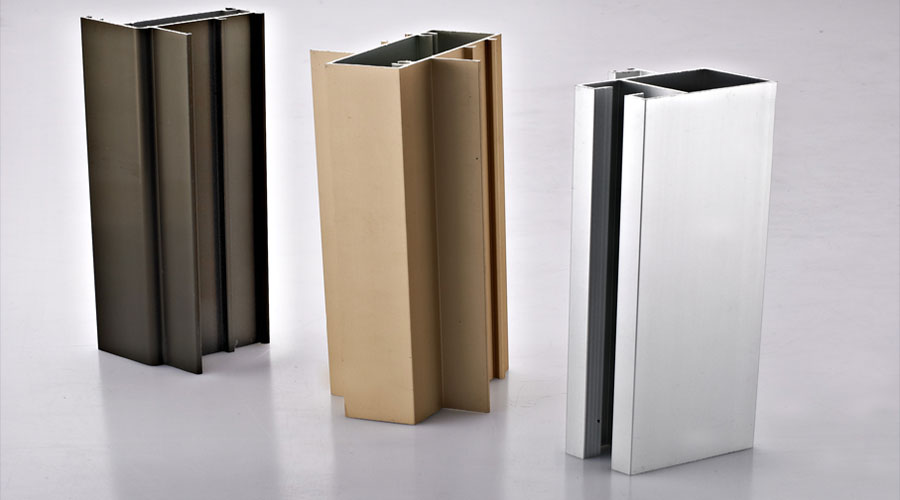
To generate SCC (Stress Corrosion Cracking) on aluminum plates, there are three conditions:
- (1) Materials are sensitive to SCC;
- (2) Store in a specific corrosive environment (for aluminum plates, in salt water medium or corrosive atmosphere);
- (3) Under tensile stress.
The chemical source of SCC is chloride. Chloride ion chemically interacts with the material at the crack tip. Since the tensile stress at the crack tip is the largest, it makes it easier for the crack to spread around.
In the actual production of aluminum plate manufacturers, the factors that affect the stress corrosion of aluminum plates are mainly environmental factors, metallurgical factors and stress factors. The three are interconnected and influence each other.
Factor 1: Environmental Factors
The environmental factors that affect the stress corrosion of aluminum plates are: ion species, ion concentration, solution pH, oxygen and other gases, corrosion inhibitors, ambient temperature, ambient pressure, etc.
After studying the stress corrosion of 2A12 and 7A04 aluminum plates in different atmospheric environments, it was found that aluminum plates have different sensitivity to stress corrosion in different environments and are more sensitive in the marine environment. The marine environment contains a large amount of salt, and Cl- will pass through The protective film on the surface of the aluminum plate enters the inside and causes corrosion.
Experiments show that when the mass concentration of HNO3 solution is between 20% and 40%, the corrosion of aluminum plate intensifies, and the corrosion rate of aluminum plate reaches the highest point at a concentration of about 35%. In concentrated HNO3 solution, the stress corrosion of aluminum plate and It is not obvious that the reason for this phenomenon is due to the formation of a dense oxide film on the surface of the aluminum plate, which prevents further corrosion of HNO3.
Factor 2: Metallurgical Factors
The metallurgical factors mainly include the influence of casting method, processing method and hot stress corrosion on gold. It is found that the cathodic polarization increases the sensitivity of stress corrosion of aluminum plate, and the stress corrosion sensitivity of friction stir welding is lower than that of fusion welding.
It is generally believed that SCC does not occur in properly processed 6061-T6 and 3004 aluminum plates. Different metallurgical factors change the type of surface film on the aluminum plate and cause changes in the internal structure and crystal structure of the aluminum plate, which affects the electrochemical behavior of the aluminum plate And mechanical behavior, which results in different sensitivity to stress corrosion of aluminum plates.
Factor 3: Stress Factor
The stress factors mainly include load type, load size, loading direction, loading speed, etc. As far as SCC is concerned, the stress direction must be perpendicular to the grain boundaries in order to be able to separate it. One of the key factors for stress corrosion is stress And different stress effects will produce different effects.Alternative stress and the environment work together to produce corrosion fatigue, which is usually significantly different from stress corrosion cracking caused by fixed stress. Generally, corrosion fatigue has more serious consequences than stress corrosion. The difference of loading speed will also affect the sensitivity of stress corrosion of aluminum plate.
Link to this article: Three Factors Affecting SCC Stress Corrosion Of Aluminum Plates
Reprint Statement: If there are no special instructions, all articles on this site are original. Please indicate the source for reprinting:https://www.cncmachiningptj.com/,thanks!
 PTJ® provides a full range of Custom Precision cnc machining china services.ISO 9001:2015 &AS-9100 certified. 3, 4 and 5-axis rapid precision CNC machining services including milling, turning to customer specifications,Capable of metal & plastic machined parts with +/-0.005 mm tolerance.Secondary services include CNC and conventional grinding, drilling,die casting,sheet metal and stamping.Providing prototypes, full production runs, technical support and full inspection.Serves the automotive, aerospace, mold&fixture,led lighting,medical,bicycle, and consumer electronics industries. On-time delivery.Tell us a little about your project’s budget and expected delivery time. We will strategize with you to provide the most cost-effective services to help you reach your target,Welcome to Contact us ( sales@pintejin.com ) directly for your new project.
PTJ® provides a full range of Custom Precision cnc machining china services.ISO 9001:2015 &AS-9100 certified. 3, 4 and 5-axis rapid precision CNC machining services including milling, turning to customer specifications,Capable of metal & plastic machined parts with +/-0.005 mm tolerance.Secondary services include CNC and conventional grinding, drilling,die casting,sheet metal and stamping.Providing prototypes, full production runs, technical support and full inspection.Serves the automotive, aerospace, mold&fixture,led lighting,medical,bicycle, and consumer electronics industries. On-time delivery.Tell us a little about your project’s budget and expected delivery time. We will strategize with you to provide the most cost-effective services to help you reach your target,Welcome to Contact us ( sales@pintejin.com ) directly for your new project.
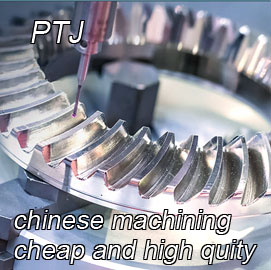
- 5 Axis Machining
- Cnc Milling
- Cnc Turning
- Machining Industries
- Machining Process
- Surface Treatment
- Metal Machining
- Plastic Machining
- Powder Metallurgy Mold
- Die Casting
- Parts Gallery
- Auto Metal Parts
- Machinery Parts
- LED Heatsink
- Building Parts
- Mobile Parts
- Medical Parts
- Electronic Parts
- Tailored Machining
- Bicycle Parts
- Aluminum Machining
- Titanium Machining
- Stainless Steel Machining
- Copper Machining
- Brass Machining
- Super Alloy Machining
- Peek Machining
- UHMW Machining
- Unilate Machining
- PA6 Machining
- PPS Machining
- Teflon Machining
- Inconel Machining
- Tool Steel Machining
- More Material

